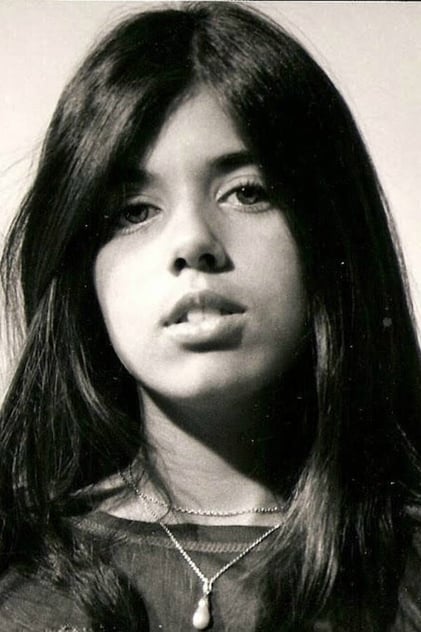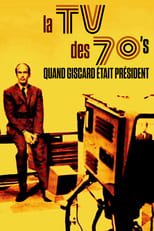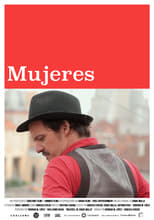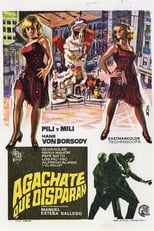

Jeanette
Born: October 10, 1951
in London, England, UK
in London, England, UK
Janette Anne Dimech (born 10 October 1951), known professionally as Jeanette, is a Spanish singer and songwriter. She first rose to prominence as the lead singer of Pic-Nic, a teenage folk-pop band that found success in 1968 with her song "Cállate, niña". Jeanette returned as a solo artist in 1971 with the Hispavox single "Soy rebelde", which redefined her career as a romantic balladist and was a hit across the Spanish-speaking world, becoming a generational anthem.
In 1976, Carlos Saura included Jeanette's 1974 song "Porque te vas" in his film Cría cuervos, which propelled it to become a major hit and one of the most famous Spanish pop songs of all time. After the international success of "Porque te vas", Jeanette worked in France and Germany until she returned to the Spanish market with the 1981 album Corazón de poeta, which includes several of her most famous songs. The commercial reception of Corazón de poeta allowed her to record two more albums with RCA Victor—Reluz in 1983 and Ojos en el sol in 1984—which were unsuccessful. Her last studio album, Loca por la música, was released in 1989 on independent record label Twins and sought to reinvent her style with techno-pop influences.
The figure of Jeanette has been revalued in the 21st century and she is now considered a cult artist and an influence on Spanish-language indie pop. In 2010, 20 minutos described Jeanette as "a legend of Spanish music and muse of independent pop".
Dimech's father is of Maltese descent who lived in the Belgian Congo and a Spanish mother originally from the Canary Islands. Because of her grandparents' import-export business, she was born in the London suburb of Willesden, and grew up in Chicago and La Habra, California. After her parents' separation when she was 12, she moved to Barcelona with her mother and younger brother and sister. Having grown up in the United States, she spoke only English when she first moved to Spain. She was placed in an American school at first, but later befriended some local Spanish children who helped teach her Spanish.
After her band, Pic-Nic split up at the end of the 1960s, Jeanette moved to Vienna with her husband, Hungarian football player László Kristof, and lived quietly as a homemaker and the mother of their only child, Blythe.
During the 1960s Jeanette learned to play guitar and began to write her own songs. She styled her music after American folk music, and her idols included Bob Dylan, Donovan, and the Byrds. Later she joined the student band Pic-Nic as a singer, and in 1967 they had a measure of success with a folk version of the Spanish children's song "Cállate, niña" (in which Jeanette had co-written). Other notable songs of theirs included "Amanecer" and "No digas nada". However, constant disagreements among members, such as whether or not to record English versions of their songs, ended with the dissolution of the group. ...
Source: Article "Jeanette (Spanish singer)" from Wikipedia in English, licensed under CC-BY-SA 3.0.
In 1976, Carlos Saura included Jeanette's 1974 song "Porque te vas" in his film Cría cuervos, which propelled it to become a major hit and one of the most famous Spanish pop songs of all time. After the international success of "Porque te vas", Jeanette worked in France and Germany until she returned to the Spanish market with the 1981 album Corazón de poeta, which includes several of her most famous songs. The commercial reception of Corazón de poeta allowed her to record two more albums with RCA Victor—Reluz in 1983 and Ojos en el sol in 1984—which were unsuccessful. Her last studio album, Loca por la música, was released in 1989 on independent record label Twins and sought to reinvent her style with techno-pop influences.
The figure of Jeanette has been revalued in the 21st century and she is now considered a cult artist and an influence on Spanish-language indie pop. In 2010, 20 minutos described Jeanette as "a legend of Spanish music and muse of independent pop".
Dimech's father is of Maltese descent who lived in the Belgian Congo and a Spanish mother originally from the Canary Islands. Because of her grandparents' import-export business, she was born in the London suburb of Willesden, and grew up in Chicago and La Habra, California. After her parents' separation when she was 12, she moved to Barcelona with her mother and younger brother and sister. Having grown up in the United States, she spoke only English when she first moved to Spain. She was placed in an American school at first, but later befriended some local Spanish children who helped teach her Spanish.
After her band, Pic-Nic split up at the end of the 1960s, Jeanette moved to Vienna with her husband, Hungarian football player László Kristof, and lived quietly as a homemaker and the mother of their only child, Blythe.
During the 1960s Jeanette learned to play guitar and began to write her own songs. She styled her music after American folk music, and her idols included Bob Dylan, Donovan, and the Byrds. Later she joined the student band Pic-Nic as a singer, and in 1967 they had a measure of success with a folk version of the Spanish children's song "Cállate, niña" (in which Jeanette had co-written). Other notable songs of theirs included "Amanecer" and "No digas nada". However, constant disagreements among members, such as whether or not to record English versions of their songs, ended with the dissolution of the group. ...
Source: Article "Jeanette (Spanish singer)" from Wikipedia in English, licensed under CC-BY-SA 3.0.
Movies for Jeanette...

Title: La TV des 70's : Quand Giscard était président
Character: Self (archive footage)
Released: January 7, 2022
Type: Movie
In May 1974, Valéry Giscard d'Estaing became President of the Republic and wanted to bring about a new era of modernity. One of his first decisions was to break up the ORTF with the creation of three new television channels: TF1, Antenne 2 and FR3. Three new public channels but autonomous and competing. It is a race for the audience which is engaged then, and from now on the channels will make the war! This competition will give birth to a real golden age for television programs, with variety shows in the forefront. The stars of the song are going to invade the living rooms of the French for their biggest pleasure. This unedited documentary tells the story of the metamorphosis of this television of the early 1970s, between freedom of tone, scandals, political intrigues and programs that have become mythical.


Title: Mujeres, de Coque Malla
Released: January 18, 2019
Type: Movie
Coque Malla meets with a number of female artists during the creative process of his new musical work. Intimate essays, confidences, complicity, sense of humour and creative passion that will culminate in the live recording of the album "Mujeres" ("Women"). A journey through the life of an artist with songs and women as absolute protagonists, with the exception of his close friend, Antonio Dyaz.


Title: Numéro un
Character: Self
Released: April 5, 1975
Type: TV
A French variety show.


